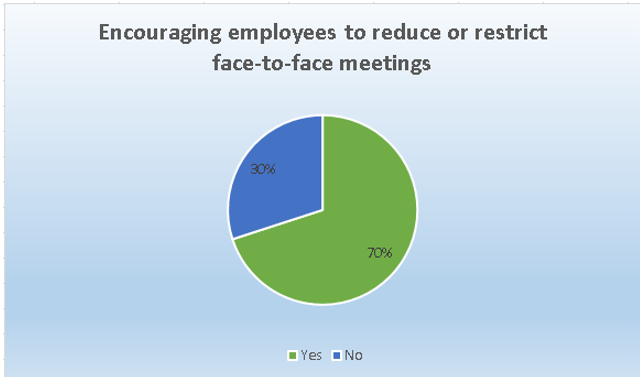It’s the video game of generating income grow and private equity firms are in it for the long haul (or a minimum of till they reach their rate of return, then they’re gon na offer).
Their performance matters both for investors and the larger economy MOST APPARENTLY sound stewards of capital were revealed to be anything however throughout the 2007-09 financial crisis. Bank managers were shown to have taken on too much threat. Star hedge-fund managers suffered losses. Nor have the years ever since been kind. carter obtained $.
The private-equity (PE) market has actually been an exception to the trend. The funds it released during the crisis in 2007-09 have wound up yielding a median annualised return of 18%. And it has actually become much more crucial. Investors, from university endowments to public pension funds, have actually turned over ever more cash to PE supervisors (see chart).
Properties under management have swollen to more than $4trn. The 8,000 companies run by PE in America account for 5% of its GDP, and a similar share of its workforce. Now another savage economic crisis is in full swing and the performance of PE is a crucial question for investors and the economy.
Particular funds can have their own timelines, investment goals, and management viewpoints that separate them from other funds held within the very same, overarching management firm. Effective private equity companies will raise lots of funds over their life time, and as firms grow in size and complexity, their funds can grow in frequency, scale and even specificity. To get more info regarding portfolio managers and - go to the blogs and -.
Tyler Tysdal is a long-lasting entrepreneur helping fellow entrepreneurs sell their service for optimum value as Managing Director of Freedom Factory, the World’s Best Business Broker situated in Denver, CO. Liberty Factory assists business owners with the biggest offer of their lives.
Meanwhile they have actually collected $1.6 trn in dry powder that they can deploy on new deals. PE shops’ fate depends upon whether the hit to their existing investments is nasty enough to eliminate the potential gains from dealmaking managed by the crisis. Start with the potential losses. In the first quarter of 2020 the 4 big listed PE firms, Apollo, Blackstone, Carlyle and KKR, reported paper losses on their portfolios of $90bn.
After an early scare PE firms’ shareholders have concluded that the outlook is fairly bright (see chart). Are they right? Many PE managers have actually been energizing returns by piling debt on to the business they buy. In the years right away after the last crisis most buy-out offers were finished with debt worth no greater than six times gross running revenues.
That would suggest that PE-run companies are vulnerable. Majority of the 18 junk-rated firms that defaulted in the very first quarter of the year were PE-owned, according to Moody’s, a score firm. It anticipates the general scrap default rate to triple to 14% by 2021 (state prosecutors mislead). Over the previous years PE financing has actually shifted away from dopey, sidetracked banks towards expert private-credit companies.
Private Equity – Blackstone

And making things more difficult still, most huge PE supervisors say that the firms they own are either ineligible for, or unwilling to tap, the American federal government’s organisation bail-out schemes, the Income Defense Programme and the Main Street Loaning Program. Nevertheless, a number of other aspects may have altered to operate in PE’s favour.
Since the 2007-09 crisis lots of PE managers have actually likewise established big credit armsfor the big four companies, these now account for a third of their properties. They may offer supervisors more internal expertise and systems for raising financial obligation, making it simpler to reorganize the debts of delicate portfolio companies on favourable terms.
” There is a troublesome space,” says Marc Lipschultz, co-founder of Owl Rock, a private-credit fund. “We don’t know how deep or how large it is, however funds need to discover a bridge throughout. securities fraud theft.” And if PE-run firms can not raise more debt, default or restructure their borrowings, the remaining alternative is an “equity cure”: PE stores stump up the cash to keep their companies afloat.
The method funds are structured means that managers can not deploy their “dry powder” raised for brand-new funds into firms owned by older ones. loans athletes sports. However most older funds do have huge reserves. Michael Chae, the chief financial officer of Blackstone, says that around $30bn of its $152bn of dry powder is set aside for them.
Generally, a PE fund returns cash to its investors once it offers its stake in a companybut if the financial investment period is still ongoing, the fund can ask for it back. According to a market body for PE investors, the variety of calls for such “recycled capital” has increased. Bailing out existing investments will drag down returns for PE shops.
Many PE managers wish to use their freshly broadened credit arms to scoop up bombed-out loans and bonds with collapsed pricesLeon Black, the creator of Apollo, has stated the opportunity is “huge”. But the volume of conventional buy-outs dropped dramatically in March, and just a couple of companies have given that made purchases.
Now it is time to pounce. Editor’s note: Some of our covid-19 coverage is free for readers of The Economic expert Today, our everyday newsletter. For more stories and our pandemic tracker, see our coronavirus hubThis article appeared in the Finance & economics section of the print edition under the heading “More cash, more problems”.
Private Equity Firms Raised More Money In 2019 Than They Ever

As Warren Buffett stated, “Rule primary: Never ever lose cash. Rule second: Never forget rule top.” Whether you are the CEO/founder of a startup or an older, privately held company, there might come a time where you and your associates are seeking outside capital. In a perfect world, you are doing so to grow and scale a company due to require.
Whatever the case might be, your campaign to raise outdoors capital will certainly include sophisticated investors like private equity investors deeply scrutinizing your current finances and possible to offer an attractive return (partner indicted counts). Essentially, if you are considering outdoors capital from private equity investors, you require to ask yourself one crucial concern: “Is my business all set for the needs of private equity?” As the president of a nationwide executive search firm, I routinely stumble upon situations where private equity firms are exerting considerable pressure on their portfolio companies to adhere to higher efficiency standards.
Much of these situations require us to change the existing CFO with a private equity knowledgeable candidate. So why do private equity firms do this? As pointed to by Buffett, it is to safeguard their investment. Specifically if the private equity firm is investing eight or 9 figures into your organisation, the stakes are incredibly high.

Specifically, I will go over some substantial modifications in terms of reporting standards and personnel that private equity firms need of portfolio business. Despite the funding source, business that obtain outside capital are playing with raised stakes. Lax compliance standards or incomplete monetary declarations are just out of the concern.
Frequently, portfolio companies offer this clearness through more detailed monetary statements – private equity firm. In fact, this increased level of information may be an obligatory part of the fundraising round. As just one example, many private equity companies require their portfolio business to have a hard close every month. Numerous private business forego this practice monthly, instead selecting to do it every quarter or every year.
If the portfolio business does not have the resources to quickly implement a month-to-month close, it may create some considerable challenges within the organization. Together with a regular monthly difficult close, private equity firms typically institute rigid monetary planning and analysis (FP&A) requirements. These FP&A requirements might consist of things like money flow forecasts, EBITDA (incomes before interest, tax, depreciation and amortization) bridges and more.






